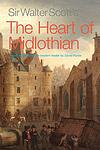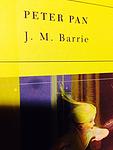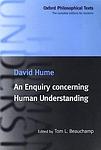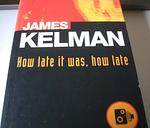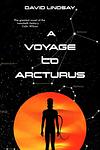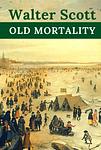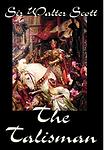The Greatest Roman, Scottish Books of All Time
Click to learn how this list is calculated.
This list represents a comprehensive and trusted collection of the greatest books. Developed through a specialized algorithm, it brings together 300 'best of' book lists to form a definitive guide to the world's most acclaimed books. For those interested in how these books are chosen, additional details can be found on the rankings page.
Genres
Countries
Date Range
Reading Statistics
Click the button below to see how many of these books you've read!
Download
If you're interested in downloading this list as a CSV file for use in a spreadsheet application, you can easily do so by clicking the button below. Please note that to ensure a manageable file size and faster download, the CSV will include details for only the first 500 books.
Download-
1. The Aeneid by Virgil
This epic poem tells the story of Aeneas, a Trojan who travels to Italy, where he becomes the ancestor of the Romans. It includes a series of prophecies about Rome's future and the deeds of heroic individuals, and is divided into two sections, the first illustrating the hero's journey and the second detailing the wars and battles that ensue as Aeneas attempts to establish a new home in Italy. The narrative is deeply imbued with themes of duty, fate, and divine intervention.
-
2. Confessions by Augustine
"Confessions" is an autobiographical work by a renowned theologian, in which he outlines his sinful youth and his conversion to Christianity. It is written in the form of a long, introspective prayer directed to God, exploring the author's spiritual journey and deep philosophical ponderings. The book is renowned for its eloquent and deeply personal exploration of faith, making it a cornerstone of Christian theology and Western literature.
-
3. The Prime of Miss Jean Brodie by Muriel Spark
The novel is set in 1930s Edinburgh and follows the story of six girls under the tutelage of an unconventional teacher, Miss Jean Brodie. Miss Brodie, in her prime, takes it upon herself to educate the girls about life, love, politics, and art, often disregarding the traditional curriculum. The narrative explores the influence of Miss Brodie on the girls, the consequences of her nonconformist teachings, and the ultimate betrayal that leads to her downfall.
-
4. Metamorphoses by Ovid
"Metamorphoses" is a classical epic poem that narrates the history of the world from its creation to the deification of Julius Caesar within a loose mythico-historical framework. The narrative is filled with stories of transformation, focusing on myths and legends of the Greek and Roman world. The tales, which include the stories of Daedalus and Icarus, King Midas, and Pyramus and Thisbe, among others, are all linked by the common theme of transformation, often as a punishment or reward from the gods.
-
5. Meditations by Marcus Aurelius
"Meditations" is a collection of personal writings by a Roman Emperor, providing deep insights into Stoic philosophy. The book is a series of introspective reflections on how to deal with life's challenges with wisdom, integrity, self-discipline, and benevolent affection for all mankind. It serves as a manual for self-improvement and moral guidance, emphasizing the importance of accepting things outside of one's control and maintaining a tranquil mind amidst adversity.
-
6. The Private Memoirs and Confessions of a Justified Sinner by James Hogg
Set in 18th century Scotland, the novel explores the psychological downfall of a deeply religious man who believes he is predestined for salvation and thus justified in committing a series of murders. He is driven to this path of self-destruction by a mysterious stranger who may be either a devilish tempter or a manifestation of his own deranged mind. The book serves as a critique of religious fanaticism and a chilling exploration of the dark side of human nature.
-
7. The Wealth of Nations by Adam Smith
This influential economic book presents a groundbreaking theory that argues for free market economies. The author posits that individuals acting in their own self-interest within a system of natural liberty will result in societal benefit, a concept often referred to as the "invisible hand" theory. The book also critiques mercantilism and explores concepts such as the division of labor, productivity, and free markets. It is widely considered one of the foundational texts in the field of economics.
-
8. De Rerum Natura by Lucretius
"De Rerum Natura" is a long didactic poem written in the first century BC, which explores Epicurean philosophy and the nature of the universe. The text delves into topics such as the nature of the gods, the atomic structure of the universe, human sensation and thought, and the fear of death. The author argues that understanding the physical world can free humans from superstition and fear, leading to peace of mind and true happiness.
-
9. The Golden Ass (Metamorphoses): Or Metamorphoses by Apuleius
This classic novel follows the protagonist, a young man who is transformed into a donkey after meddling with magic he doesn't understand. His journey takes him through a series of adventures, where he encounters a variety of characters from different walks of life and gets into all sorts of trouble. Through his experiences, he gains a deeper understanding of the human condition and the world around him. The narrative also includes several mythological tales and allegories, including the famous story of Cupid and Psyche. Eventually, the protagonist regains his human form through divine intervention, having learned valuable lessons about life, love, and humanity.
-
10. Lanark by Alasdair Gray
"Lanark" is an unconventional narrative that combines elements of fantasy, dystopia, and realism. The protagonist, a man named Lanark, moves through two parallel existences. In one, he's a young man named Duncan Thaw in post-war Glasgow, struggling with his artistic ambitions and personal relationships. In the other, he's Lanark in the grim, bureaucratic city of Unthank, suffering from a mysterious skin condition and grappling with his identity and purpose. The novel explores themes of love, alienation, creativity, and the human condition, presenting a complex and thought-provoking portrait of life and society.
-
11. The Heart Of Midlothian by Sir Walter Scott
The novel is a historical tale set in 18th-century Scotland, revolving around Jeanie Deans, a young woman of strong moral character, who embarks on a daunting journey from Edinburgh to London to seek a royal pardon for her wrongfully accused sister, Effie, who faces execution. Along the way, Jeanie encounters various characters from different strata of society, confronting issues of justice, morality, and national identity. Her steadfast loyalty and unwavering principles highlight the cultural and social tensions of the time, as the narrative intertwines personal drama with broader historical events, including the Porteous Riots and the influence of the Scottish Reformation.
-
12. Annals by Cornelius Tacitus
"Annals" is a historical work that provides a comprehensive account of the Roman Empire from the reign of Tiberius in 14 AD to the death of Nero in 68 AD. The author, a senator and historian of the Roman Empire, explores the inner workings of Roman politics, military campaigns, and social culture during this period. The book offers an in-depth look at the political machinations, power struggles, and the moral decay of the Roman elite, providing a critical perspective on the Roman emperors and their rule.
-
13. Peter And Wendy by J. M. Barrie
"Peter And Wendy" by JM Barrie is a beloved children's classic that tells the enchanting story of a young girl named Wendy Darling who, along with her two brothers, embarks on a magical adventure to the whimsical world of Neverland. There, they encounter the mischievous and eternal boy, Peter Pan, and his fairy companion, Tinker Bell. Together, they face thrilling escapades, battles with the villainous Captain Hook, and discover the importance of imagination, friendship, and the power of never growing up.
-
14. An Enquiry Concerning Human Understanding by David Hume
This philosophical work explores the nature of human knowledge, arguing that all of our understanding comes from experience rather than innate ideas. The author challenges the idea of causality, suggesting that our belief in cause and effect is based on habit rather than logical reasoning. The book also discusses the limitations of human understanding, including the inability to fully comprehend the concept of God or the soul, and the impossibility of certain knowledge. The author's skepticism about traditional philosophical concepts has had a significant influence on later philosophers and the field of epistemology.
-
15. The Odes by Horace
"The Odes" is a collection of lyric poems by an ancient Roman poet. The poems cover a wide range of themes, including love, friendship, wine, nature, morality, and the human condition. The author's style is noted for its elegance, wit, and mastery of meter. The poems also reflect the social and political context of Rome during the author's lifetime, providing insight into the culture and values of the period.
-
16. Trainspotting by Irvine Welsh
This novel is a gritty, raw portrayal of a group of heroin addicts living in Edinburgh, Scotland. The narrative is non-linear and told from multiple perspectives, providing a deep dive into the minds and lives of these characters. The story explores themes of poverty, addiction, friendship, and the struggle to escape one's circumstances, all set against the backdrop of a bleak urban landscape. It is known for its strong Scottish dialect, graphic content, and dark humor.
-
17. Lives of the Caesars by Suetonius
"Lives of the Caesars" is a historical narrative that provides a detailed account of the personal and public lives of the first twelve Roman emperors, from Julius Caesar to Domitian. The author presents a vivid depiction of their character, behavior, appearance, and private lives, as well as their political actions, military exploits, and administrative policies. The book is a valuable source of information about the Roman Empire's early days, offering a unique perspective on the power, corruption, and extravagance of the Roman elite.
-
18. How Late It Was, How Late by James Kelman
The novel is a stream-of-consciousness narrative told from the perspective of Sammy, a shoplifter and ex-convict from Glasgow who wakes up in an alley after a two-day drinking binge to find he is completely blind. As Sammy struggles to navigate his new reality, he contends with bureaucratic systems, confronts his past, and grapples with his relationships, all while trying to understand and adjust to his sudden loss of sight. The story is a gritty exploration of working-class life, the human condition, and the nature of reality.
-
19. A Voyage To Arcturus by David Lindsay
"A Voyage to Arcturus" is a philosophical and allegorical novel that follows the journey of a man named Maskull to the planet Tormance, located in the star system Arcturus. As he explores this strange and mystical world, Maskull encounters various beings and experiences profound transformations, both physically and spiritually. Through vivid and imaginative storytelling, the book delves into themes of identity, morality, and the nature of reality, challenging readers to question their own perceptions and beliefs.
-
20. The City of God by Augustine
The book is a philosophical and theological masterpiece, written as a defense of Christianity after the sack of Rome in 410 AD. The author contrasts the earthly city, characterized by pride and love of self to the point of contempt for God, with the heavenly city, characterized by love of God to the point of contempt for self. He argues that though the earthly city may seem dominant in the present age, the heavenly city will ultimately triumph. The book is a profound exploration of history, philosophy, religion, and the human condition.
-
21. Letters from a Stoic by Seneca
"Letters from a Stoic" is a collection of moral epistles written by a renowned Stoic philosopher. The letters provide practical guidance on everything from dealing with adversity and the pursuit of wisdom to the folly of consumerism and the nature of friendship. The author's stoic philosophy encourages peace of mind through understanding and accepting the natural order of the universe, and his letters offer timeless wisdom and insights that are still relevant today.
-
22. Guy Mannering by Sir Walter Scott
The novel unfolds as a tale of prophecy and fate intertwined with the lives of its characters, primarily centering around Henry Bertram, the heir to the estate of Ellangowan, who is kidnapped as a child by smugglers after his father's financial ruin. The story spans over two decades, following Henry's adventures and misadventures as he grows up under an assumed identity. The narrative is rich with themes of loyalty, inheritance, and the supernatural, as the predictions of the astrologer Guy Mannering and the Gypsy matriarch Meg Merrilies play out in the lives of the Bertrams and their acquaintances. Set against the backdrop of the Scottish Lowlands, the tale weaves through a tapestry of social change and personal redemption, culminating in the restoration of family and fortune.
-
23. Histories by Cornelius Tacitus
"Histories" is a comprehensive account of the Roman Empire from 69-96 AD, a period marked by significant political turmoil. It provides an in-depth look at the reigns of four emperors: Galba, Otho, Vitellius, and Vespasian, along with the social and political upheavals of the time. The narrative also covers the Jewish rebellion and the burning of the Jerusalem Temple, offering a rich historical context of the period. Despite some gaps in the record, it remains a crucial primary source for understanding this era of Roman history.
-
24. Old Mortality by Sir Walter Scott
Set in the 17th century during the Covenanting Rebellion in Scotland, the novel weaves a tale of adventure, romance, and political intrigue around the historical events of the time. The story follows the young hero, Henry Morton, who is caught between his loyalty to the Presbyterian Covenanters and his love for Edith Bellenden, a Royalist. As Morton becomes embroiled in the conflict, he must navigate a path through the tumultuous civil war, facing moral dilemmas and the consequences of his choices. The narrative also explores themes of honor, tradition, and the impact of history on individual lives, all while providing a rich portrayal of Scottish culture and the complexities of religious and political loyalties.
-
25. The Talisman by Sir Walter Scott
"The Talisman" is a historical novel set during the Third Crusade, focusing on the conflict between Richard the Lionheart, King of England, and Saladin, Sultan of Egypt and Syria. The story explores themes of chivalry, honor, and the cultural clash between the Christian West and the Islamic East. The plot revolves around a talisman, which is believed to have healing powers, and the knight who is tasked with delivering it to Richard. The novel presents a nuanced view of both sides of the Crusade, highlighting the virtues and flaws of each.
Reading Statistics
Click the button below to see how many of these books you've read!
Download
If you're interested in downloading this list as a CSV file for use in a spreadsheet application, you can easily do so by clicking the button below. Please note that to ensure a manageable file size and faster download, the CSV will include details for only the first 500 books.
Download









